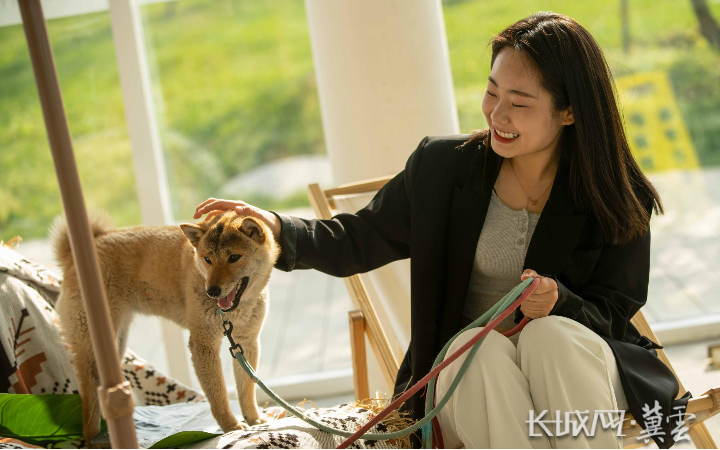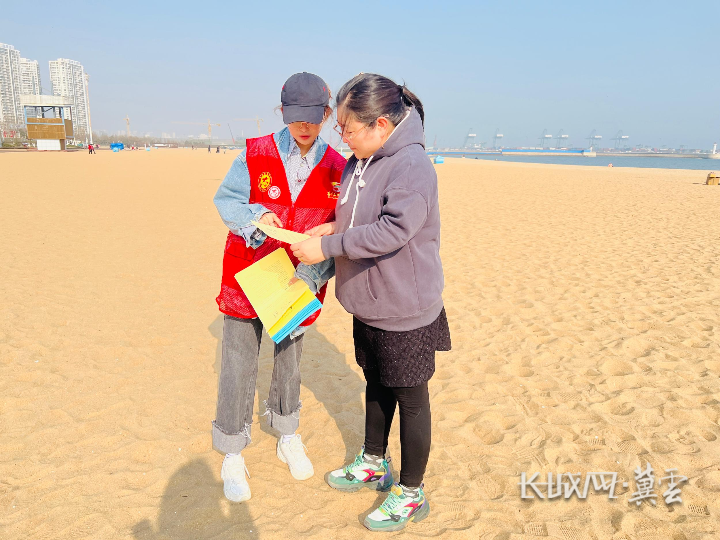暑假天天玩照样当学霸的小建议
|
对一些人,比如美国音乐家布莱恩·威尔逊(Brian Wilson)来说,“提到夏天就会想起快乐的时光以及温暖的阳光。我们在夏日里去海滩,去迪士尼乐园,去享受生活。”而对于刚刚放假的孩子们来说,暑假却可能意味着长时间无所事事,只会偶尔有几天去各处参加夏令营。那么他们其他大把的自由时间做些什么呢? 我确信,其他父母已经试着让孩子们去锻炼身体、整理房间、做家务、和朋友们去玩、去各类组织做志愿服务、参与教育活动等,但这些和平常上学时我们希望孩子们做的并无差别。孩子们不愿在假期里把做过的事情再重复做。或许我们可以对这些活动进行一些改动,这样暑期生活就能既充满挑战,也让人充实。以下是我的一些想法: 1.做家务。我们都知道做家务可以训练孩子的责任心,但是让他们行动起来则大费周章。不如每次他们用吸尘机清洁地毯、擦桌子或者洗碗后都奖励他们一定分数吧。事实上,一款叫做家务战争(Chorewars)的游戏就把做家务变成了一项游戏。亲戚家的孩子们会为了在游戏中得分而争先恐后地去洗碗的!但愿这个游戏也对夫妻有效,收效如何就天晓得了。 2.玩,不过随意点。如果没有人来主动组织,或是收费让人参加,大众看起来都不会自己玩了。正如理查德·洛夫(Richard Louv)在《林间最后的小孩》(Last Child in the Woods)一书中写的,在公园、动物园和院子里随性玩耍,能让孩子们了解自然,补充维他命N(注:洛夫称现在的小孩都缺少维他命N, N指自然)。重新发现美丽的地球吧,重新和她建立联系! 3.读书,不过或许这次读点别的?同学间的攀比和媒体影响往往使得孩子们读的都是相同类型的书。多样化的书单或许能提供更多阅读体验,让孩子们有一个更加多姿多彩的暑假。小说、非小说都要读一些。不要去读那些没什么营养,只是用来消磨时间的闲书。如果父母在书单上毫无头绪,别觉得丢人,去寻求帮助吧。请当地图书馆馆员等专业人士推荐一些,他们推荐的书籍或许会打破小孩惯常的习惯! 4.在当地新闻里“淘宝”。我基本没见过孩子们去读报纸。不过,现在是暑假,他们可能已经厌倦了在iPad上划来划去,在网上和人聊天或者玩电脑游戏。鼓励他们搜索一下当地的新闻,看看有没有感兴趣的活动或者项目吧。如果你也认为孩子们找到的活动很有意义的话,那就准备好给他们报名吧。 5.写日记。这听起来或许很老套,但是写日记不只是可以提高写作能力,还能帮助孩子去过时常反思、确立目标的好习惯。正如苏格拉底所说,“未经审视的生活不值得度过”(The unexamined life is not worth living)。在实际层面,回顾一天的所作所为可以促使孩子们为第二天定下更好的计划。如果孩子们没兴趣写日记,那么试着让他们开始写博客。当然我说的不是微博,我指的是有一定长度的写作。 6.看看高水准电影。Netflix或者Hulu等在线电影租赁服务知道你和孩子们看过什么电影,因此可以据此为你们推荐电影。让孩子们找那些值得信赖的影评推荐,而不要接受商家基于以往观影行为给出的推荐。给孩子们蓄意寻找一些来自其他国家的电影。世界很大,不要被大数据形成的习惯蚕茧给困住。 7.安排好屏幕以外的时间。作为教育科技领域的从业人员,我不会要求家长抵制技术,但请让孩子们别只是对着各种屏幕(电视、Xbox、iPad等)娱乐至死。当然,家长们希望孩子们能有个快乐的暑假,但是看太多视频或者电视带来的快乐有其自身的缺陷,会导致无聊和没精神,我把这种情况称作娱乐导致的精疲力竭。iPad和电脑也可以用来创造,这也是我下面要说的。 8.如果没法让孩子们离开屏幕,那么让他们去学习一个新的技术工具,诸如音频、视频、记笔记或者讲故事的工具。孩子们也可以使用MIT的app inventor来编写自己的应用程序,或者使用Scratch来制作自己的游戏。不过有个坏消息,那就是家长很有可能根本不知道这些是什么,更别提如何去用了。不过好消息是在网上有很多专业人士或者业余爱好者愿意提供帮助。 9.整理文件。最后到了对这些自拍做点什么的时候了!让孩子们去整理自己电脑等设备中的照片、视频和其他文件。教他们如何给文件归档,上传或者删除文件。向他们展示如何把这些内容保存在Google Drive,Youtube或者Flickr这样的云端平台(国内对应的有:百度云盘,优酷和Lofter,译者注),这样就可以释放自己电脑和手机中的空间,同时进行一些必要的隐私设定防治在网上外泄。 10.学一门MOOC。社区的实体学校或许已经放假了。但网络学校可没有。网上有免费的MOOC课程,其中有些对初中或者高中生来说也很有趣。和同学们一起登陆Coursera(https://www.coursera.org/),Canvas(https://www.canvas.net/)或者edX(https://www.edx.org/)去看看里面的课程吧。果壳网旗下的MOOC学院也收录了所有的在线课程。在线课程中或许没有老师检查你有没有来上课,但是学习网络课程是一个教给孩子坚持和自律的方式。 家长们还应该让孩子们自己找一些高效、有趣、有收获的活动。你可能会惊讶于他们最终找到的东西。暑假的时间太长了,不能陷入无聊之中。家长们,让我们改变这种无聊状态吧。 Ten Ideas to Fight Summer Boredom By Berlin Fang To some, such as American musician Brian Wilson, “summer means happy times and good sunshine. It means going to the beach, going to Disneyland, having fun.” To children freshly released from schools, summertime could also mean chronic boredom, interrupted only by a few days of camp here and there. What do they do with the wide gaps of free time between these camps? I am sure other parents out there have tried to ask children to exercise, sort out rooms, do chores, have playdates with friends, volunteer at organizations, or engage in educational activities, things we also want them to do anyway during the regular semesters. Yet with vacation comes the expectation not to do more of the same. We can put a new spin to the same old things, so that summer can both challenge and satisfy. Here are some of my thoughts: Fight Chores wars? We all know chores train children to take responsibility for themselves and others, but getting them to act is like pulling their teeth. How about assigning points for vacuuming, cleaning, and washing? There is a game called Chorewars that actually gamifies chores. With this game cousins at parties fight for the opportunity to do dishes! We hope that works for husbands and wives too! But good luck with that. Play, unstructured. People seem to have lost the ability to play unless someone organizes it or charges them for it. Consider unstructured play in parks, zoos, and yards to get some of the Vitamin N (N for nature) Richard Louv describes in Last Child in the Woods. Rediscover and reconnect with the good earth. Read, but maybe something different this time? With peer pressure and media influence, children often read the same type of books. A varied list would present more mental stimulation and a diversified summer experience. Ask them to balance fiction with nonfiction. Avoid mental candies children gravitate towards for killing time. If parents are clueless, don’t feel too embarrassed to ask for help. Take recommendation by authorities, including local librarians, who may recommend other books against children’s usual reading habits. Try local news scavenger hunt. I rarely see children read newspapers. Well, it’s summer and they may have become tired of swiping, tapping and clicking. Encourage them to do a scavenger hunt for activities and programs in local news. Be ready to sign them up if you too see value in them. Keep a journal. Old-fashioned as it may sound, keeping a journal does more than improving one’s writing. It helps children to develop the habit to live reflectively and purposefully. “The unexamined life is not worth living" (Socrates). On a practical level, reflecting on their day may prompt children to have better plans for the next day. If journals do not appeal, try getting them to start a blog. I did not mention microblog, as I really think writing at some length helps. Watch quality movies. Online movie-renting services such as Netflix or Hulu learn about you and your children’s viewing behaviors and give recommendations accordingly. Encourage children to look for credible critic recommendations rather than recommendations vendors give based on previous viewing habits. Find movies from another country for them to watch. The world is larger than the cocoons big data can weave around people. Schedule time off screens. As someone in the educational technology profession, I am the last person to ask parents to resist technology, but please encourage children to move beyond passively receiving entertainment from some type of screen: TV, Xbox, iPad, for instance. You of course want them to have fun, but the fun in having too much video or TV self-defeats, leading to boredom and lethargy, or what I would call entertainment burnout. With iPads and computers they can also produce, which brings me to my next suggestion. Learn a new technology tool, such as tools for audio, video, note-taking, or storytelling, especially if you fail to get them off screens. Children could also learn to build apps using MIT’s app inventor or games with Scratch. The bad news is that you probably don’t have a clue what these are, let alone how they work. The good news is that there are tutorials out there by both professionals and hobbyists. Organize files. Finally there is time to do something about all these selfies! Ask them to organize their photos, videos as well as other files on their computer and devices. Teach them to file, upload, or delete. Show them how to save them in the clouds, using platforms such as Google Drive, Youtube or Flickr, to free up space in their computers and phones, while turning on appropriate privacy settings to prevent them from drifting around on the Internet. Take a MOOC course: Physical schoolhouses in your neighborhoods may be empty now. Not the virtual ones. There are free massive open online courses (MOOCs) out there, some of which are interesting even for middle or high schoolers. Work with them to check Coursera, Canvas, EduX for lists. Chinese site Guokr also aggregates all such courses. There may not be people to take attendance or check participation, but this is a good way to teach them some grit and self-discipline. Do your children want to learn a new language? You don’t have to hire a private teacher. TryDuolingo. Parents could also ask children to create their own activities for productivity, fun and learning! You may be surprised what they can come up with. Three months is too long to be left simply to boredom. Parents, let’s shake it up.(方柏林) |
|
关键词:暑假,学霸,建议,教育 |



 河北卢龙:苍...
河北卢龙:苍... 秦皇岛开发区...
秦皇岛开发区... 北戴河新区:...
北戴河新区:... 河北秦皇岛:...
河北秦皇岛:... 秦皇岛开发区...
秦皇岛开发区...